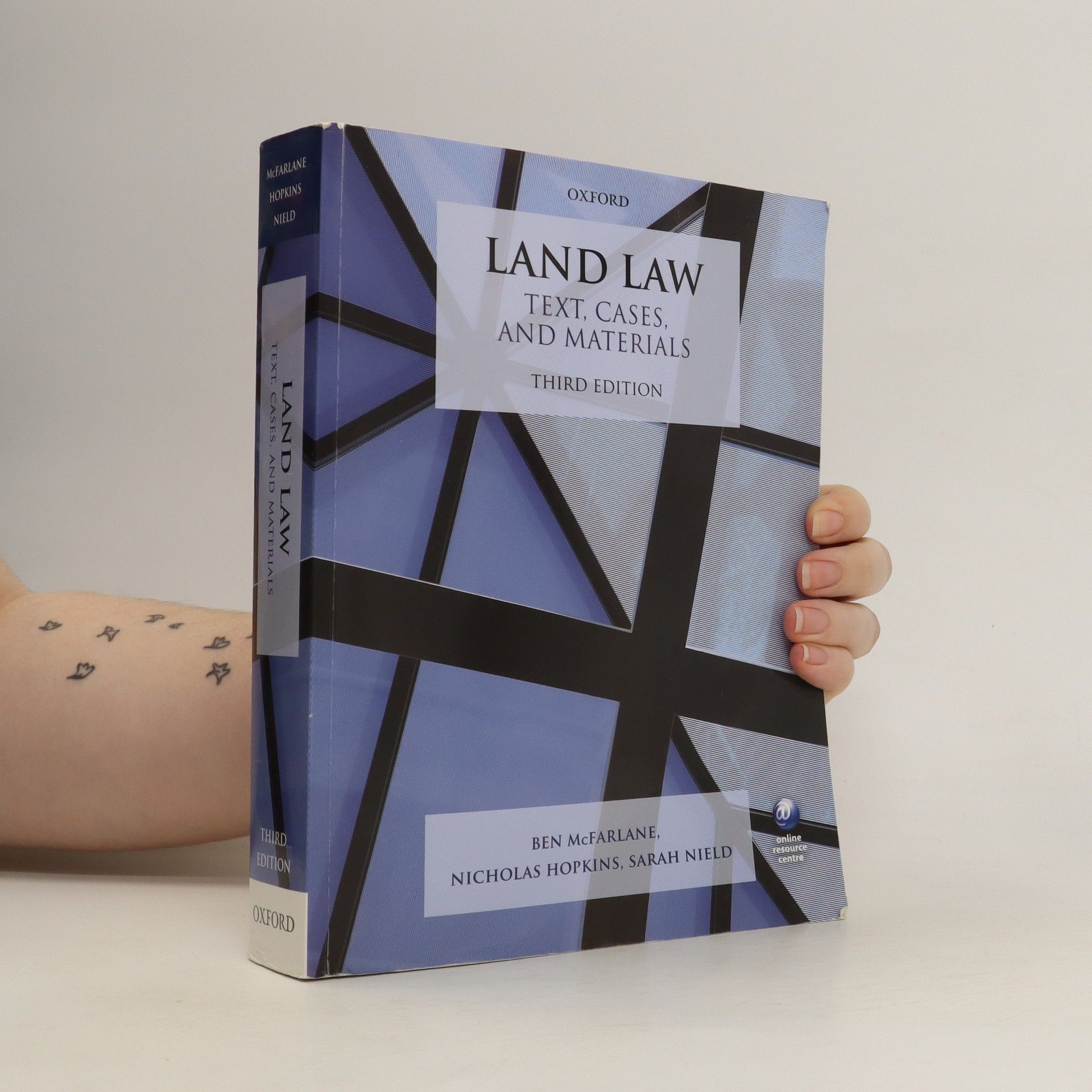Land law : text, cases, and materials
- 1196pages
- 42 heures de lecture
An authoritative course text designed to provide a standalone resource for students. It contains a blend of carefully selected key cases, legislation and academic debate linked by substantial author commentary.

